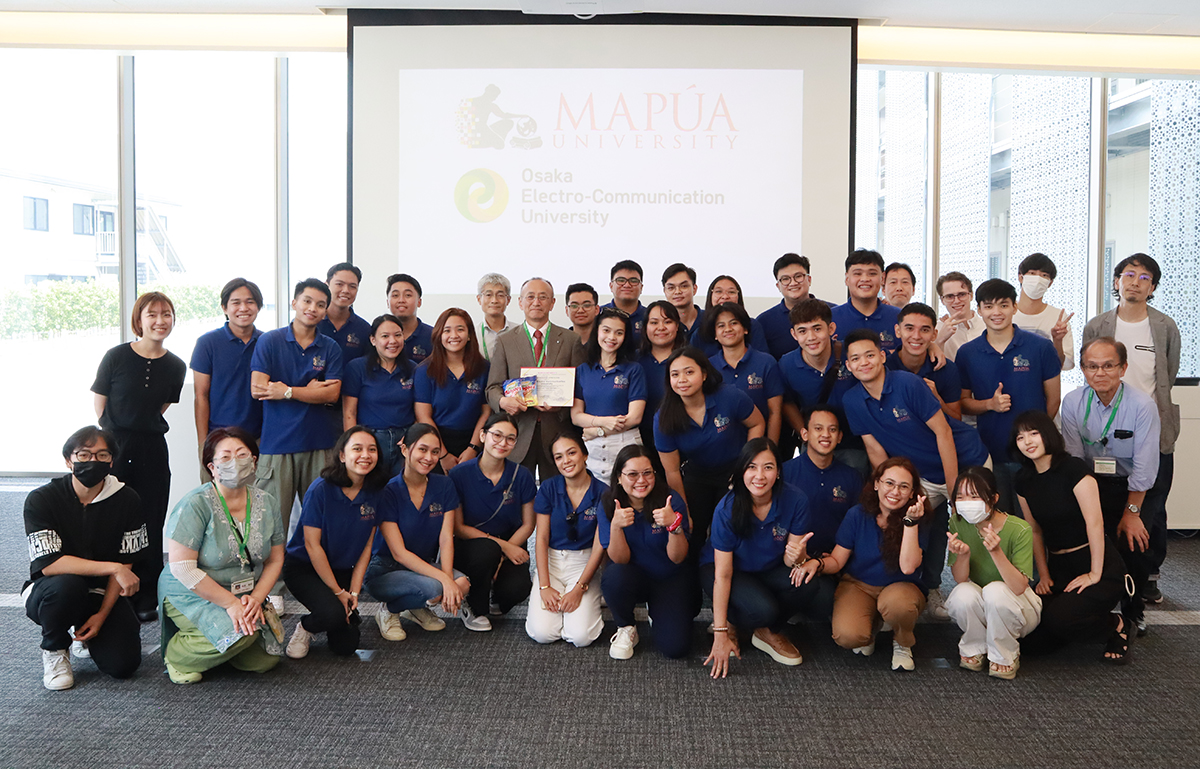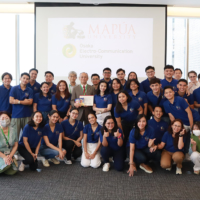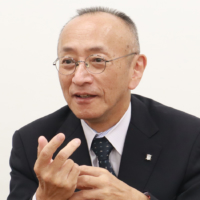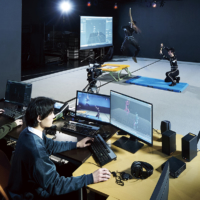Osaka Electro-Communication University is an institution that offers degrees in a wide range of fields, including electrical and electronic engineering, information and communication engineering, medical science, mechanics, architecture, sports, games and media, and computer science, with two campuses in Osaka Prefecture.
“As our name implies, our university was established to train specialized technicians in electrical communications,” said OECU President Kuninari Shiota. “Our school’s origin dates back to 1925 with the establishment of an electro-communication engineering school around the time laws requiring wireless communication in maritime transport were enacted in response to the Titanic tragedy, and NHK began radio broadcasting in Japan. It was a time when there was domestic and global demand for electro-communication specialists.”
Foreseeing the future
In 1961, the school established a university, with just one faculty with one department — the Electronic Engineering Department of the Faculty of Engineering. OECU now offers degrees in 14 departments within four faculties and three graduate schools, all with information education at their core.
The university plans further expansion with the Faculty of Architecture and Design in spring 2024. It aims to leverage its strength in information and communication technology to produce the next generation of architecture and spatial design specialists by integrating creativity and technology.
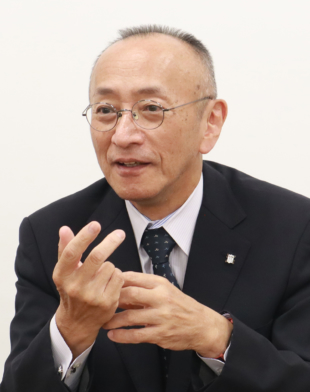
“In this fast-paced era of information technology, the demand for specialists constantly evolves. Throughout the decades, we have been aware of the need to adapt to these changes to prepare for the future,” Shiota said.
From its early years, OECU has recognized the importance of information education and has actively incorporated it in its curriculum. In recent years, OECU has emphasized the importance of specialized education using ICT and its implementation spans all faculties and departments. ICT applies to all fields, from mechanical engineering to environmental sciences, and its importance cannot be emphasized enough. For example, the medical field utilizes ICT to assess the effectiveness of therapies and develop optimal treatment plans for patients.
In another university-wide initiative, the university launched the Mathematics, Data Science and AI (artificial intelligence) Education Program for all students in 2021, which aligns with the digital transformation of education promoted by the government. “These skills should not be just for those who major in that field but for all students, regardless of their major. It should become fundamental knowledge for everyone in this modern era,” Shiota said.
Beyond the classroom
OECU sets itself apart from its academic counterparts through the pioneering Department of Digital Games, which focuses on both academia and the industry. Established in 2003, this department boasts a cadre of faculty members who are accomplished professionals within the gaming industry, affording students invaluable real-world experience through industry-academia collaborations. Focused on game development, 3D, computer graphics and visual effects, art and design, and game management, this department equips students with comprehensive skill sets that prepare them for competitive careers in the gaming sector.
A testament to their prowess was evident at this year’s Tokyo Game Show, one of the world’s premier gaming exhibitions, drawing over 243,000 attendees from across the globe. In preparation, students engaged in rigorous evaluations, with faculty members serving as discerning judges, providing feedback on world-building, gameplay and responsiveness. Five select teams were privileged to present at this esteemed venue, captivating over 1,300 attendees, including those in the gaming, advertising and television industries. This experience undoubtedly represents an invaluable steppingstone for budding game developers.
OECU envisions the application of game strategies beyond traditional gaming realms. Shiota noted, “The application, expansion and adaptation of game technology into various facets of society constitute the essence of ‘gamification’ — a significant field that our university continues to work on.”
For instance, the Faculty of Architecture and Design aspires to equip students with the proficiency to harness ICT for contextually responsive architectural and urban planning, ultimately contributing to realizing a sustainable society. Gamification in conjunction with virtual reality is an innovative and unique avenue for simulating architectural and urban planning dynamics, offering a novel perspective on these domains.
Central to the Department of Digital Games is the Joint Institute for Advanced Multimedia Studies, a pivotal facility facilitating industry-academia collaboration at OECU’s Shijonawate Campus. Students enjoy firsthand exposure to industry professionals through active joint research and partnerships with external entities.
The state-of-the-art facilities provided, including an extensive motion capture studio, workrooms catering to video, audio and CG production, and a versatile multipurpose hall capable of accommodating up to 950 people, are operated and managed by industry experts. This on-campus, on-the-job experience allows students an unparalleled opportunity for content creation and fosters valuable experiential learning.
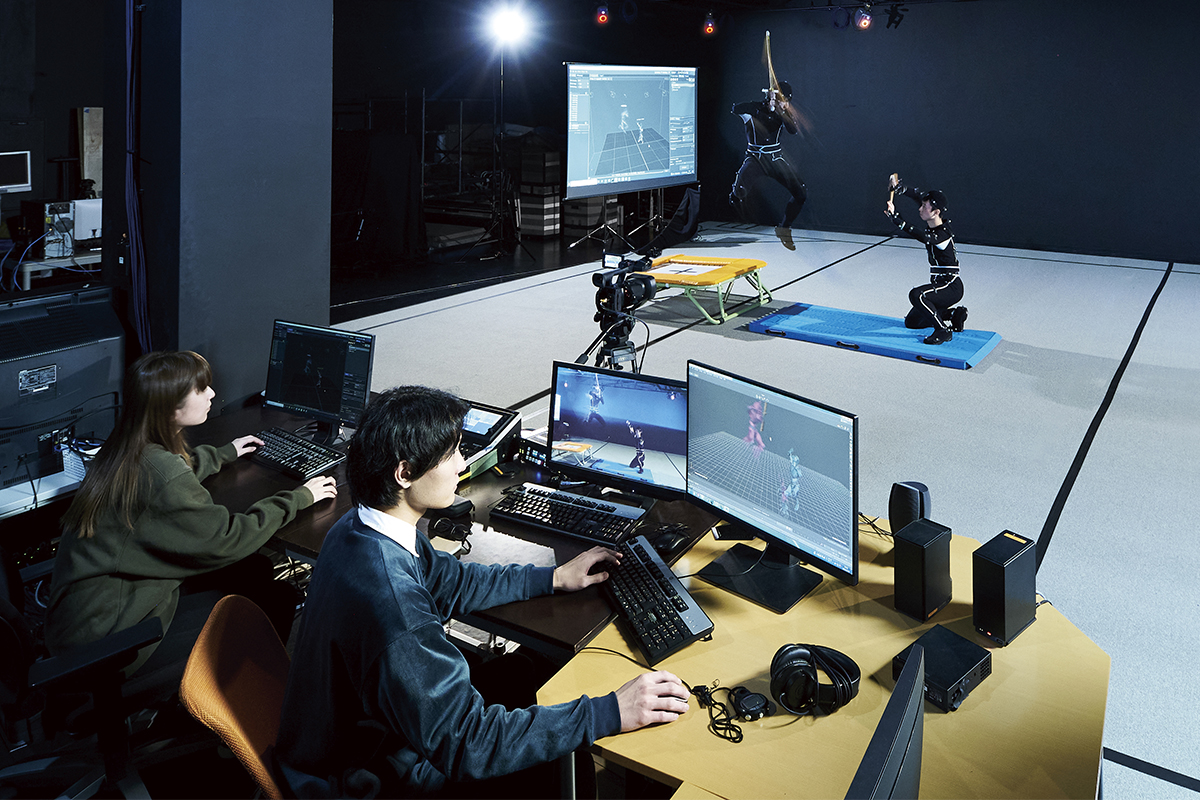
One of the cornerstones of OECU’s long-term vision is the internationalization of practical learning. OECU graduates are poised to enter a globalized workplace characterized by technical documentation and manuals in English, alongside a workforce comprising individuals from diverse cultural backgrounds. OECU’s approach to internationalization distinguishes itself by emphasizing the cultivation of soft skills encompassing language proficiency and adaptability to empower students to achieve success in a dynamically diversifying work environment.
As an initial step, OECU revamped its International Exchange Center in 2022, strategically relocating the facility to a prominent position on campus. This strategic move has catalyzed increased interaction between the university’s domestic and international students, fostering exchange programs with esteemed institutions such as the University of Florida in the United States and Mapua University in the Philippines. In pursuing the university’s internationalization goals, OECU plans to broaden its international student enrollment and facilitate outbound student exchange programs.
“We remain resolute in pursuing the institution’s guiding principle: ‘A University That’s Considered Useful to Society Rather Than a University That Stands Out,’” Shiota noted. “It’s crucial for the country’s future to focus on educating the younger generations, reskilling current employees and internationalizing the workforce. As part of our mission of higher education, we want to tackle these issues head-on. To achieve this, we will continue to evolve as a university, which includes restructuring and modifying our faculties and departments.”
This page is sponsored by Osaka Electro-Communication University.
Osaka Electro-Communication University
Address: 18-8 Hatsucho, Neyagawa-shi, Osaka 572-8530, Japan
Tel: +81-72-824-3325
E-mail: [email protected]
URL: https://www.osakac.ac.jp/
https://www.osakac.ac.jp/en/

Download the PDFs of this ASEAN-Japan 50th anniversary Special



